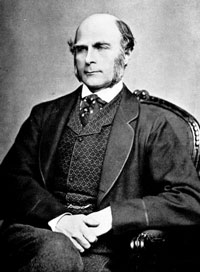The Basis of a Christian Worldview

Q. What is the chief end [purpose] of man?
A. Man’s chief end is to glorify God, and to enjoy him forever.
Q. What rule hath God given to direct us how we may glorify and enjoy him?
A. The Word of God, which is contained1 in the Scriptures of the Old and New Testaments, is the only rule to direct us how we may glorify and enjoy him.
(Westminster Shorter Catechism)
These two fundamental principles (living for the glory of God and submitting solely to the Bible, as His inerrant Word and rule for our lives) are the bedrock upon which any truly Christian worldview is founded. Without this perspective there is little more to anchor our lives upon than self-interest and utilitarianism (‘whatever works for the most people’). This is no more true than in the fundamental teachings of Genesis—that God created mankind and so God is worthy of all our devotion and worship; and that man is created in the image of God and is worthy of special regard in all of Creation (Genesis 1:26–28).
Throughout history, as cultures have decided to step away from these fundamental rules for life and adopt other standards, atrocity and mayhem have followed.
For example, wherever mankind discounted the account of Creation and the common descent of man, as told in Genesis, racism sprouted, and the belief that man could define who was, and who was not, fully human (see Adam’s Brothers? Race, Science, and Genesis Before Darwin, and Stephen Jay Gould’s admission).2 Such attitudes resulted in justification for the most inhumane treatment of slaves and the extermination of ‘savages’ as seen in the Americas, Africa, and Australia, as though people were nothing more than disobedient draft animals or pests blighting the land (see Herero Genocide), or even missing links worthy only of being museum specimens (see Darwin’s Body Snatchers).
As society discounted man’s creation in the image of God and accepted the fantasy of evolution, mankind increasingly tried to decide which lives were worth living and which lives were simply a drain upon society. The ‘science’ of eugenics, based on a twisted understanding of genetics, a belief in evolution (and the desire to control it in humans), was conceived in England, grew in the United States and Europe, and found its fullest expression in Nazi Germany (see review of From Darwin to Hitler). In England, the evolutionists Francis Galton (Darwin’s cousin and inventor of the term ‘eugenics’), H.G. Wells, George Bernard Shaw, and others advocated manipulating the human genome through selective breeding, murder, and suicide.3 In the United States, forced sterilization, selective marriage, and involuntary abortions became law (see review of War Against the Weak). Alexis Carrel, the noted French biologist, surgeon and 1912 winner of the Nobel prize in Physiology or Medicine, advocated the use of gas chambers to eliminate ‘inferior stock’.4
In Germany, the Jews, the mentally ill, and the handicapped were defined as sub-human and exterminated.
While it is tempting to argue that such actions are the result of a few madmen, the facts do not bear this out. In each case masses of people in whole nations walked away from God’s Word and fulfilled the words of Paul:
And since they did not see fit to acknowledge God, God gave them up to a debased mind to do what ought not to be done. They were filled with all manner of unrighteousness, evil, covetousness, malice. They are full of envy, murder, strife, deceit, maliciousness. They are gossips, slanderers, haters of God, insolent, haughty, boastful, inventors of evil, disobedient to parents, foolish, faithless, heartless, ruthless. Though they know God’s decree that those who practice such things deserve to die, they not only do them but give approval to those who practice them. (Romans 1:28–32, ESV).

Today is no different. Many engage in sexual perversions while arguing that there is no God and man is nothing more than an evolved animal, and so there is no reason that man should not act like an animal. Indeed, atheist philosopher Peter Singer defends bestiality (as well as abortion, infanticide and euthanasia), yet the academic establishment rewarded these views with a personal chair at Princeton5. Others argue that, because there is no God, survival of the fittest is the rule to live by, and feast upon the meagre earnings of the old, the weak, and the widowed. Some evolutionists have even claimed that rape is an evolutionary adaptation, and were stumped when challenged about why they should consider rape to be wrong under their own world view (see interview).
Still others claim that, in the absence of any God, we may define for ourselves which lives are human and which lives are worth living for the betterment of society and the human species. And so, babies are murdered6 within the womb while utilitarian philosophers argue for not only abortion, but infanticide and the elimination7 of the old, the handicapped, and the terminally ill (see also the articles under Q&A human life: abortion and euthanasia).
What rule has God given to direct us how we should live and view the world? The Word of God, from Genesis to Revelation. We abandon it at our peril, for the acceptance of any other authority as the basis of our morality is an open door to our own atrocities. Once we accept such an authority we become ruled by it.
The famous Milgram Experiment showed, to much surprise, that many people are willing to inflict severe pain on others under orders, showing that authority often trumps inhibitions. The experiment was supposedly comprised of ‘learners’ testing how pain can help learning by punishment through electric shock. The ‘teachers’ thought they were really hurting the ‘learners’ with electric shocks when they answered questions wrongly. In reality, there were no shocks, and the ‘learners’ were actually actors, unknown to the ‘teachers’. The disturbing result of the experiment showed that the ‘teachers’ often did not stop, even when the ‘learners’ screamed and the ‘instrument’ showed that the voltage was dangerous. All that was needed was a command to continue and reassurance that they would not be held responsible and the ‘teacher’ was willing to continue torturing the ‘learner’.
Today, there is a concerted attack on the credibility of the Word of God aimed at the real history of the world in Genesis and intended to end in the installation of a new morality under a new humanistic authority, making creation/evolution a crucial battleground in the ‘culture wars’ of today.
References and notes
- [Ed: Some have used the above answer to imply that the Bible merely ‘contains the word of God’, with the corollary that some parts of it are not the word of God. But this is not an honest use of this citation, as the Westminster Divines regarded the entire ‘Old Testament in Hebrew … and the New Testament in Greek’ as ‘immediately inspired by God’ (Westminster Confession of Faith 1(8)).] Return to text.
- Such attitudes long predated Darwin, but all held in common the rejection of the true history of mankind found in Genesis. Even in Christian cultures, unbiblical notions of ‘pre-Adamic races’ and the like were used to justify rejection of the simple truth—that we are all related. Return to text.
- H.G. Wells most clearly elucidated these ideas in his vision of a ‘New Republic’ built upon a new set of ethics based on eugenic utilitarianism: ‘The new ethics will hold life to be a privilege and a responsibility, not a sort of night refuge for base spirits out of the void; and the alternative in right conduct between living fully, beautifully, and efficiently will be to die….[Members of the New Republic] will have an ideal that will make killing worth the while; like Abraham, they will have the faith to kill, and they will have no superstitions about death. They will naturally regard the modest suicide of incurably melancholy, or diseased or helpless persons as a high and courageous act of duty rather than a crime.’ Anticipations of the Reaction of Mechanical and Scientific Progress Upon Human Life and Thought, London: Chapman & Hall, LD. 1902. Return to text.
- Man, The Unknown, New York and London: Harper Brothers. 1935. Return to text.
- Peter Singer was installed as the Ira W. DeCamp Professor of Bioethics at the University Center for Human Values in 1999 and still works part-time in this capacity. He also has been working part-time as Laureate Professor at the University of Melbourne in the Centre for Applied Philosophy and Public Ethics since 2005. Return to text.
- Murder is here used in its correct technical sense, the deliberate and unjustified taking of innocent human life. Return to text.
- Some do, but more commonly they push for doing this ‘with permission’. A smokescreen, of course. See Hospital humanism. Return to text.
Justin Smith is a prison chaplain serving in Idaho (USA) and a Christian newspaper columnist. Return to top.

Readers’ comments
Comments are automatically closed 14 days after publication.